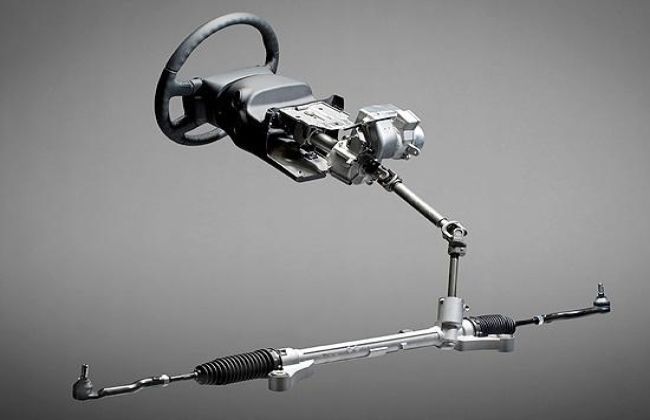Technology Decoded: Hydraulic Power Steering
sahib ஆல் பிப்ரவரி 24, 2016 06:16 pm அன்று மாற்றியமைக்கப்பட்டது செய்யப்பட்டது
- ஒரு கருத்தை எழுதுக

Power steering reduces a significant amount of strain that is required by the driver while negotiating sharp curves. It makes it easy to turn at sharp corners. Manual steering systems are used as a basis for developing power steering systems. By applying power assistance to the existing mechanical systems, steering wheel torque is reduced to appropriate levels.
Background/Development:
- Francis W Davis developed Hydraulic power steering more than 80 years ago.
- Chrysler Imperial in 1951 became the first production vehicle to be installed with a power steering system.
Technology Explained:
It is the same rack and pinion manual steering mechanism with the hydraulic assistance to reduce the effort at driver’s end. Double effect hydraulic cylinder is integrated into the steering box which is able to move the rack. Let us have a look at other insights below:
1. The power steering pump is driven by the engine to pressurize the hydraulic fluid (oil). Fluid from power steering pump is sent to the rotary control valve to move the hydraulic piston. So, the pressure force is added to the force applied to the rack by the steering wheel.

2. Rotary control valve which is linked to the steering main shaft controls the variation in the fluid pressure depending upon the amount of assistance required.
Neutral Position:
In this position when the vehicle is moving straight ahead, the pressure on both the sides of the hydraulic piston is same and hence piston will not move in either direction. The pressurized fluid from steering pump will not be able to move the piston because it is retracted back to the pump with the help of relief port.

While Turning:
The pressure difference on both the sides of the piston is the key which is responsible for assisting the rack movement. Now while turning, the rotary valve also turns which block one of the fluid line while the other will open wide which will cause pressurized fluid to flow at that side only creating a pressure difference on both side. This will help in assisting the force applied at steering wheel.
In electro-hydraulic power steering systems, electrically operated pump powered by engine via V-belts is used.
Also Read: Technical Aspects: Oil Pump & Types















